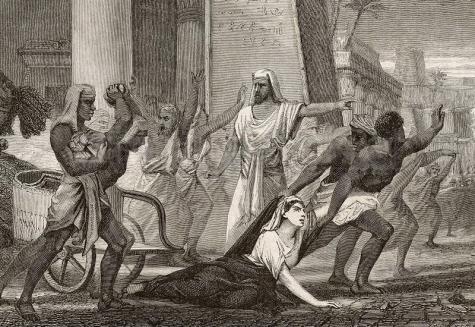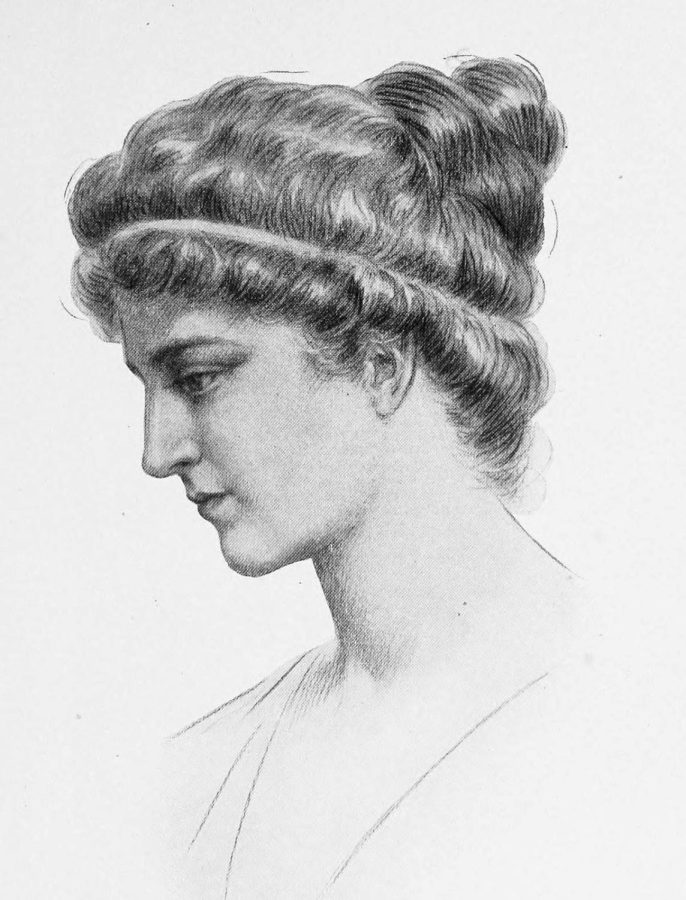National Women’s History Month Spotlight: Hypatia of Alexandria
Side profile of Hypatia of Alexandria
March 21, 2022
Throughout March, the United States explores and celebrates women’s history. It is important to spotlight female figures throughout history to remember women’s positions and powers to shape the world. Too often, women are pushed into submissive, forgotten roles and paired with responsibilities of care, family, and household work, but women have proven again and again that these tasks do not have to be categorized by gender. We must spotlight the contributions women have made to remember and remind ourselves how little gender truly matters on the large scale of things.
To kick off some spotlights, Hypatia of Alexandria is one of the earliest female icons whose intellect was unrivaled as far back as 400 C.E. Born in 335 C.E, Hypatia was raised in the grand city of Alexandria by her father, the last professor of the University of Alexandria. Her father, Theon, was a revolutionary of his own time. He refused to push stereotypical feminine roles onto his daughter and treated her like she was a son. He educated her on a variety of subjects, such as different sciences and mathematics. His status as a professor allowed her to have access to the vast libraries, texts, and classes (which she took full advantage of). Hypatia rapidly became a well-known philosopher and established mathematician. She was widely recognized by most of the other scientists and teachers in her community as the greatest thinker of their time, and her detailed records that still exist today continue to prove this.
Many citizens in Alexandria loved to attend her lectures of philosophy, as her charisma and style captured her audience’s attention. She was incredibly popular among these philosophers and believers in science. However, tensions between religion and science were growing in Alexandria. Riots were becoming common throughout the entire city. Hypatia believed in a form of philosophy known as Neoplatonism, or the idea that everything originates from perfection and exists further and further away from perfection. At the time, this was considered paganism by the Orthodox Christian church that controlled society. This conflict continued to increase until one day Hypatia was returning to her home when she was brutally mobbed by hundreds of mostly Christian monks. She was dragged through the dirt streets, stripped completely naked in public, beaten to death, horribly mutilated and literally torn apart, and even burned. Her death is perhaps the most well-documented portion of her life, especially for how brutal it was. The mob would continue their path of destruction and burn the university down. This would bring a bloody end to Alexandria’s once-flourishing scientific community.

Interestingly enough, Cyril, the leader of the mob, was declared a saint by the church for his efforts in suppressing paganism. In a dominantly Christian and masculine narrative, Hypatia has been forgotten and overruled by her murderers. Her status as an intellectual woman who dared to explore the world beyond a religious perspective has disappeared for the troped “damsel in distress”.
Hypatia of Alexandria is just one example of a women overlooked in history. She existed against patriarchal standards and actively went against the church. Her legacy barely survives today but is a reminder of a woman’s capability even during ancient times.































